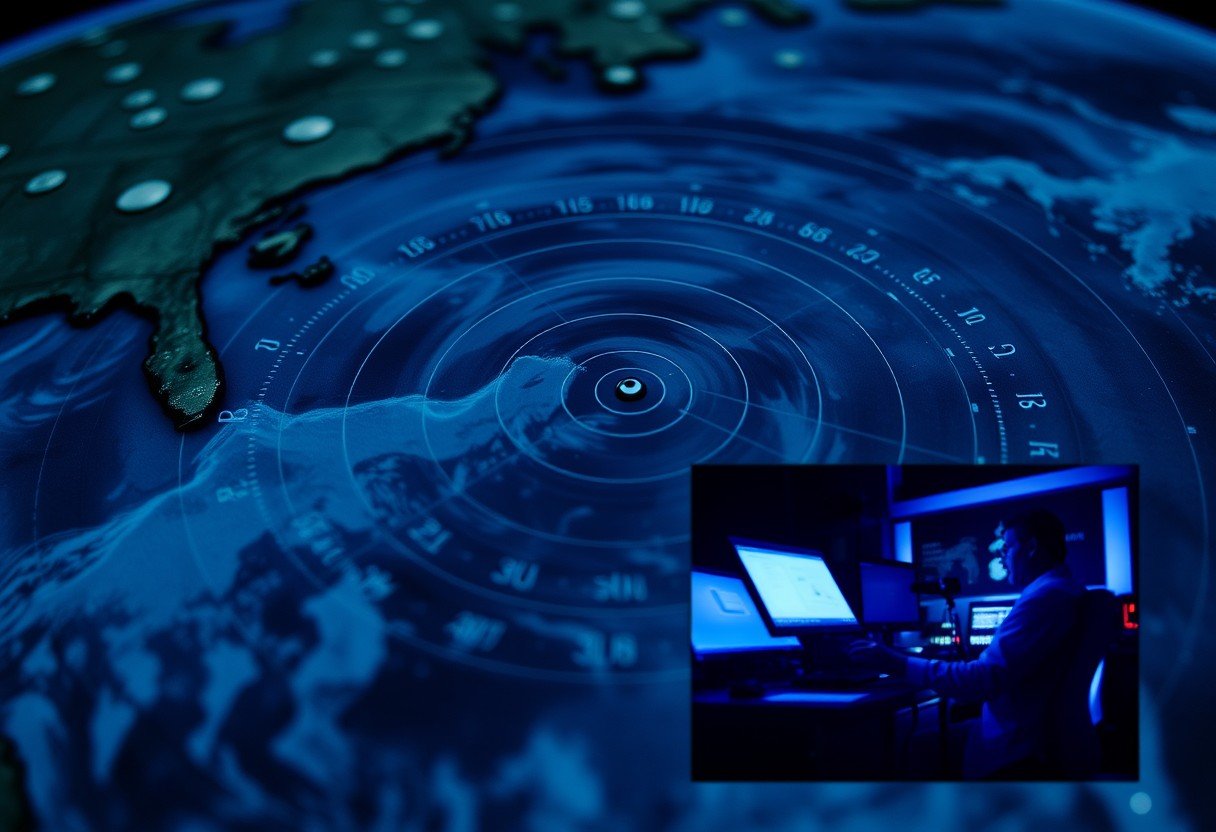You might not realize it, but the world you live in today owes a significant debt to George Westinghouse and his pivotal inventions in electrical engineering. His development of alternating current (AC) systems revolutionized how electricity is transmitted and distributed, making it safe and efficient for widespread use. This blog post will explore the far-reaching impacts of his contributions, highlighting how your daily life would be profoundly different—affecting everything from home appliances to public infrastructure—if AC power had never been realized.
Key Takeaways:
- Electric Power Distribution: The absence of Westinghouse’s invention of the alternating current (AC) system would likely hinder the efficiency of electric power distribution across long distances.
- Industrial Growth: Industries relying on electricity for machinery and manufacturing processes might face slower growth or higher operational costs, affecting economic development.
- Household Convenience: The widespread use of AC power has made modern conveniences, such as refrigeration, heating, and lighting, accessible to many households, significantly improving daily life.
- Transportation Systems: Innovations in electric transportation, including trains and public transit systems, may have been severely limited, affecting urban mobility and logistics.
- Technological Advancements: Many modern technologies, including computers and communications devices, depend on efficient electricity usage, which might have stalled without Westinghouse’s AC system.
The Impact of Westinghouse’s Invention on Electrical Systems
Across the globe, George Westinghouse’s invention of the alternating current (AC) system fundamentally transformed how you access and utilize electrical energy. His pioneering work not only facilitated the large-scale generation and transmission of electricity but also established the foundation for modern electrical systems that power homes, industries, and infrastructures. Without this transformative invention, your daily life and technological advancements would be markedly different, relying on less efficient means of electricity distribution.
Alternating Current vs. Direct Current
Any discussion of electrical systems must address the differences between alternating current (AC) and direct current (DC). While DC flows steadily in one direction, AC alternates direction periodically, enabling more efficient transmission over long distances. Westinghouse’s AC system allowed electricity to be transferred with less energy loss, which is vital for the expansive electrical networks we depend on today.
Efficiency of Power Distribution
Current electrical systems leverage the efficiency of AC for widespread power distribution, significantly reducing energy loss during transmission. This advancement ensures that the electricity powering your home or business arrives consistently and affordably.
To understand the importance of this efficiency, consider how Westinghouse’s AC system allows electrical current to travel over vast distances with minimal loss. High-voltage transmission lines utilize AC to reduce the energy wasted as heat, ultimately lowering costs for you as a consumer. This means you enjoy a reliable and economical energy supply, which is a direct benefit of Westinghouse’s innovation. Without such efficiency, powering cities and industries would present immense challenges, affecting both your daily life and global economic dynamics.

Implications for Modern Technology
The widespread adoption of alternating current (AC) transformed modern technology, enabling the efficient transmission of electricity over long distances. Without George Westinghouse’s contributions, the infrastructure that supports your everyday electrical needs—including homes, businesses, and transportation systems—would look drastically different. The innovation of AC power laid the groundwork for contemporary advancements in communication, entertainment, and industrial processes, showcasing just how integral this technology is to your daily life.
The Role of AC in Communication Technology
For you to understand the impact of AC on communication technologies, consider that it powers the transmission lines that carry data across vast distances. From the telephone to the internet, the reliable flow of electricity through AC systems has made instantaneous communication possible, revolutionizing how you connect with others and access information. Without AC, your communication methods would be significantly hindered, limiting your ability to interact in real-time.
Advancements in Renewable Energy Systems
Implications of AC systems extend into renewable energy technologies, as public and private sectors increasingly rely on these systems for sustainable power generation. With the integration of AC in wind, solar, and hydroelectric systems, you benefit from cleaner energy sources that power your home and reduce environmental impacts. The compatibility of AC with these technologies accelerates the adoption of renewables, ensuring a transition to a more sustainable future.
Systems that harness renewable energy operate more efficiently thanks to AC technology, which allows for better grid integration and energy storage solutions. Wind turbines and solar panels produce electricity that is easily converted to AC, meaning your access to sustainable electricity is amplified. In addition, the development of smart grids, powered by AC, enables you to monitor and adjust your energy consumption in real-time, promoting energy efficiency and resilience. This means you can take an active role in using renewable resources, ultimately benefiting you and the planet.
Effects on Industrial Development
Now, imagine a world where George Westinghouse’s invention had never materialized. The absence of efficient alternating current (AC) power systems would have stunted industrial development across various sectors. Factories and industries that rely heavily on electricity would struggle to operate at full capacity, limiting production outputs and the adoption of innovative technologies necessary for advancement. In turn, this would slow down the technological progression that propels your everyday life, from the devices you use to the infrastructure surrounding you.
Transforming Manufacturing Processes
Manufacturing processes have dramatically evolved thanks to the powerful AC systems introduced by Westinghouse. His advancements allowed industries to operate machinery more efficiently, leading to increased production capabilities. Automation became feasible, making it possible for you to enjoy the benefits of mass-produced goods. Ultimately, without these innovations, your experience with manufactured products would be significantly less effective and convenient.
Economic Growth and Job Creation
An necessary aspect of Westinghouse’s contributions lies in driving economic growth and creating job opportunities. The widespread adoption of electricity in manufacturing spurred new industries and revitalized existing ones, paving the way for a more robust economy. As demand for skilled workers increased, job creation flourished, allowing you to benefit from a diverse job market and numerous career prospects.
Plus, the ripple effect of economic growth resulting from Westinghouse’s inventions extended beyond simple job creation. As industries flourished, their need for suppliers also surged, generating even more employment opportunities throughout the supply chain. This economic ecosystem laid the foundation for an affluent society, providing you with improved standards of living, better access to goods and services, and ultimately shaping your quality of life. Without Westinghouse, these advantages would remain elusive, leaving your world less prosperous and dynamic.
Influence on Daily Life
All aspects of your daily life would be drastically different without George Westinghouse’s contributions to electrical systems. From the way you consume energy to the convenience of modern technology, his inventions have shaped your daily routine in profound ways. The availability of alternating current has made it possible for you to enjoy efficient heating, cooling, and lighting in your homes, which are fundamental to your comfort and productivity.
Household Appliances and Safety
One significant impact of Westinghouse’s innovations is seen in the safety and functionality of household appliances. Without his work on alternating current, the development of devices such as refrigerators, microwaves, and washing machines would be limited or potentially hazardous. You would face challenges in not only managing household chores but also ensuring that these appliances operate safely, thereby directly affecting your quality of life.
Urban Development and Infrastructure
Appliances that rely on electricity have led to the growth of urban areas by making environments more livable and efficient. The widespread adoption of Westinghouse’s alternating current systems has facilitated the construction of modern infrastructures, such as transit systems and large-scale industrial centers. You benefit from improved accessibility, safety, and convenience in your urban lifestyle, all of which hinge upon the electrical systems that enhance mobility and support various public services.
Plus, the integration of electricity into urban planning has spurred economic growth and innovation. You can witness the transformation of cities into bustling hubs of activity, where advancements in transportation and infrastructure make daily commuting easier. Without Westinghouse’s inventions, public services such as street lighting, water supply systems, and public transport would be far less efficient, ultimately affecting your quality of life in urban settings.
Global Reach of Westinghouse’s Technology
Unlike many inventions of the time, George Westinghouse’s alternating current (AC) technology transcended regional boundaries, fundamentally shaping energy systems worldwide. His innovative approach not only defined electrical engineering practices in the United States but also provided a blueprint for countries around the globe to modernize their power infrastructure. This groundbreaking technology enabled numerous nations to harness electric power efficiently, driving industrial growth and improving living standards across continents.
International Adoption of AC Power
For many countries, Westinghouse’s AC power system represented a revolutionary shift in energy. As nations began adopting this technology, they experienced a surge in electrical availability, which facilitated urban development and industrialization. Countries like Canada, the UK, and parts of Europe embraced AC power to enhance their economies and improve the quality of life for their citizens, leading to widespread electrification.
Impact on Global Trade and Communication
Trade networks flourished as AC technology enabled efficient communication systems and transportation methods based on electric power. This efficiency allowed businesses to operate on a larger scale, promoting international commerce.
International trade became more accessible and efficient due to the advantages brought by Westinghouse’s AC technology. The electrification of transportation systems, like trains and ships, reduced shipping times and costs, allowing goods to reach markets faster and more reliably. Enhanced communication infrastructures, powered by AC electricity, improved connectivity between nations, making it easier for businesses to negotiate and collaborate across borders. Consequently, Westinghouse’s innovations were pivotal in intertwining global economies and expanding trade networks during the industrial age.
The Legacy of George Westinghouse
To truly appreciate the impact of George Westinghouse’s innovations, one must recognize his enduring legacy in electrical engineering and industry. His pioneering work in alternating current (AC) power systems transformed how electricity is generated, distributed, and utilized, paving the way for the modern electrified world. From urban streetlights to household appliances, Westinghouse’s vision has continued to shape your daily life, underscoring the importance of his contributions to both technology and society.
Innovations Inspired by His Work
George Westinghouse’s groundbreaking advancements have inspired countless innovations in the fields of energy and engineering. His successful implementation of AC power systems laid the groundwork for many crucial technologies, including transformers and motors that are integral to your modern conveniences. Today’s renewable energy systems, such as wind and solar power, often utilize principles established by Westinghouse, demonstrating his influence on sustainable energy solutions.
Recognition and Historical Significance
With his remarkable contributions to the electrical industry, George Westinghouse has received considerable recognition as a pioneering inventor and entrepreneur. His efforts not only revolutionized energy production and distribution but also established a competitive landscape that drove innovation and progress. Your understanding of electrical systems and the conveniences they afford is deeply tied to his legacy.
Westinghouse’s recognition extends beyond accolades; he has become a symbol of American ingenuity. His establishment of the Westinghouse Electric Corporation solidified his commercial impact, and he played a vital role in the so-called “Battle of Currents,” battling Thomas Edison’s direct current (DC) systems. This competition ultimately resulted in the widespread adoption of AC power, which has become the global standard. As you benefit from the conveniences of modern electricity, it is crucial to acknowledge Westinghouse’s remarkable journey and the way in which he reshaped the course of technological advancement.
To wrap up
Conclusively, without George Westinghouse’s invention of the alternating current (AC) electrical system, your daily life would be profoundly affected in terms of energy consumption and electrical infrastructure. This innovation facilitated the widespread distribution of electricity, enabling modern conveniences that you often take for granted, such as lighting, appliances, and public transportation systems. Without AC, your ability to access energy-efficient technology and enjoy the comfort of home would be limited, altering your quality of life significantly.
FAQ
Q: What would happen to the electricity transmission system without George Westinghouse’s invention?
A: Without George Westinghouse’s invention of the alternating current (AC) system, the transmission of electricity over long distances would be severely limited. This would have resulted in the continued use of direct current (DC) systems, which are less efficient for long-distance transmission. Consequently, urban centers might have had access to electricity, while rural areas would remain underpowered, leading to significant disparities in energy availability.
Q: How would industrial growth be affected without Westinghouse’s contributions?
A: Westinghouse’s invention of AC power facilitated the development of large-scale industries by making it possible to transmit electricity over longer distances. Without his contributions, industries might have faced severe limitations in their operations due to the inability to efficiently distribute power. This would potentially slow the growth of manufacturing, hinder technological advancements, and keep many communities dependent on smaller, less efficient energy sources.
Q: Would renewable energy sources be as prevalent without Westinghouse’s inventions?
A: The widespread adoption of renewable energy sources, such as wind and solar power, may not have emerged as quickly or effectively without Westinghouse’s AC system. His inventions provided the necessary infrastructure to distribute electricity generated from these increasingly popular renewable sources. Without such a framework, integrating renewables into the energy grid would likely have faced significant challenges, resulting in slower advancements in sustainable energy practices.
Q: How might transportation systems be different without Westinghouse’s AC technology?
A: Without Westinghouse’s AC technology, electric transportation systems, such as streetcars and subways, would not have developed to the same extent. The ability to efficiently transmit electricity over long distances made electrified public transportation feasible and practical. Without this advancement, there may have been a continued reliance on horse-drawn vehicles or steam-powered trains, resulting in more traffic congestion and pollution in urban areas.
Q: What impact would there be on home appliances and consumer electronics without Westinghouse’s inventions?
A: The invention of alternating current by Westinghouse was pivotal in the development and popularization of home appliances, such as refrigerators, washing machines, and air conditioning units, which require reliable and efficient electricity supply. Without AC technology, the accessibility and functionality of these appliances would be drastically reduced, limiting modern conveniences and altering the way households operate. Daily life would likely be less efficient, and many modern comforts would be non-existent.








Leave a Comment